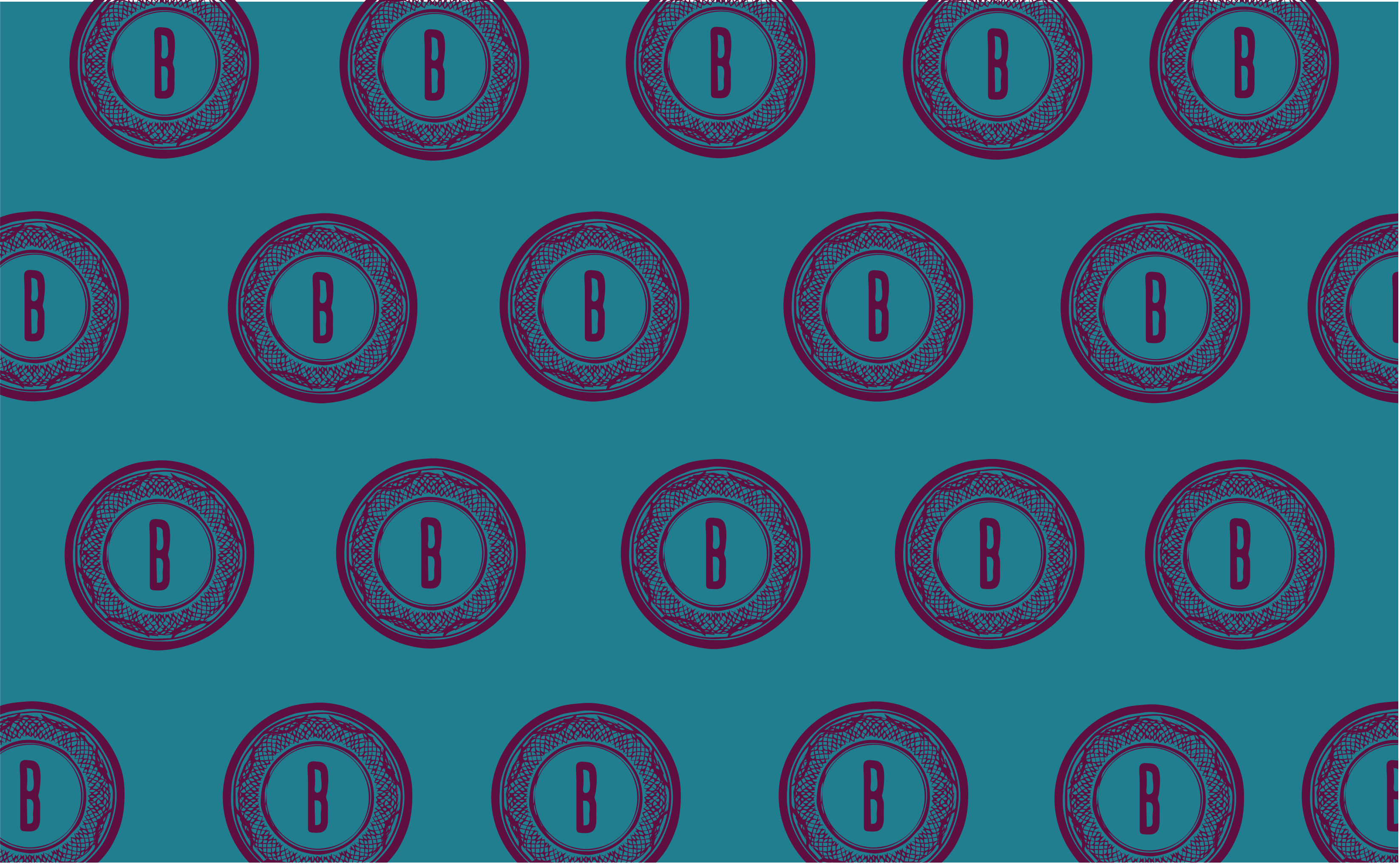
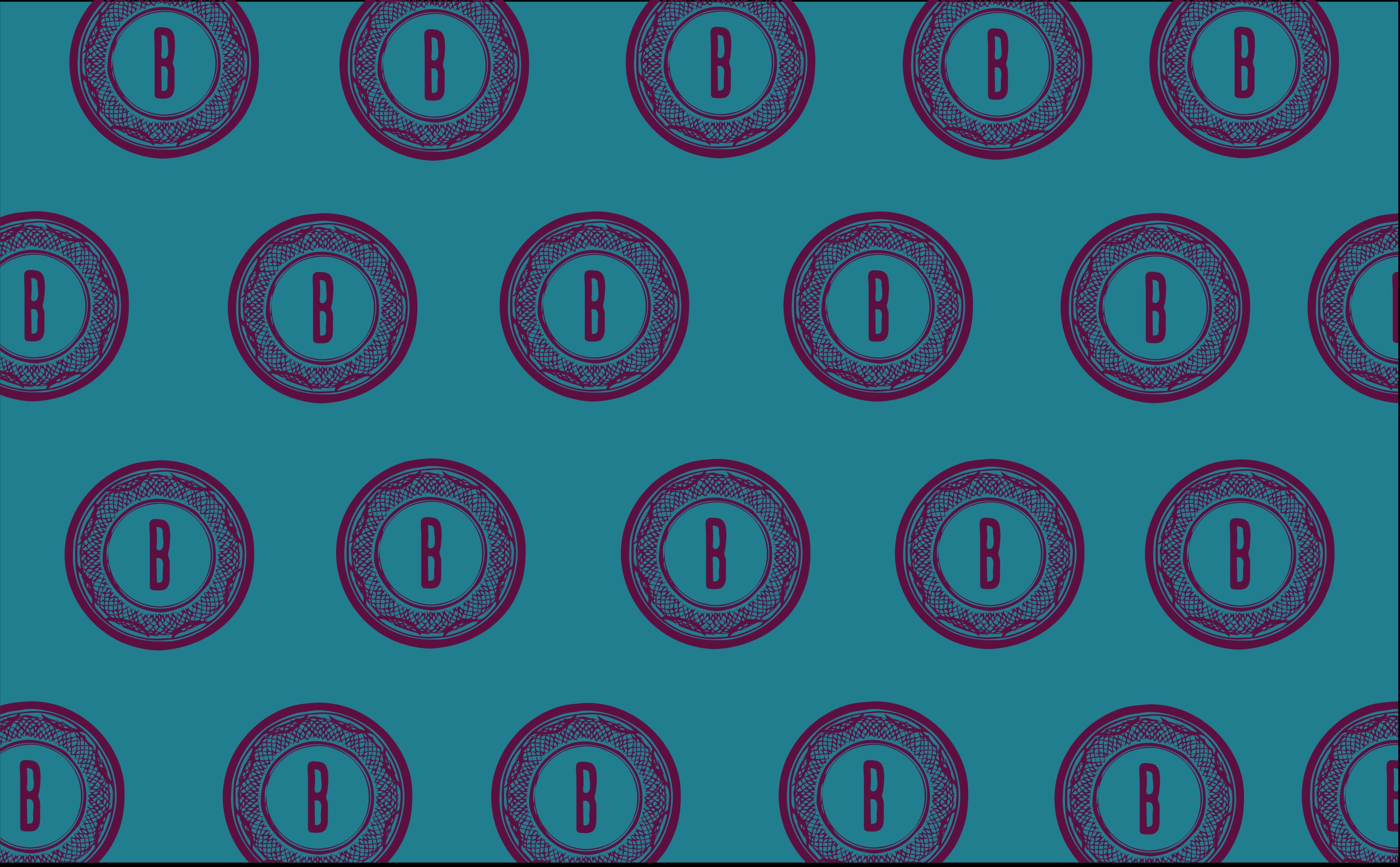
It was the day before Christmas when Pascalinah Kabi, in the office of Lesotho’s Centre for Investigative Journalism, loaded the final story of her investigative series onto their website.
This story was Pascalinah’s coup de grace. In this series, she focused on the drinking water of rural communities living in extreme poverty on the banks of ever-increasingly polluted drinking water.
The final story linked Lesotho’s head of state, prime minister Sam Matekane, to diamond mines which was, per se, not breaking news: Sam Matekane, businessman turned politician, is known as a “diamond magnate” in Lesotho. What was breaking news was the levels of water pollution; the profits made from Letšeng mines; and the beneficiaries of the mines.
Pascalinah came to the Bertha Challenge as an investigative journalist with a body of work that intended to take a penetrating look at profit and politics regarding Letšeng Diamonds and downstream water pollution.
However, six months into her Fellowship, Pascalinah was discouraged. She said, “… at the Centre for Investigative Journalism we did a lot of digging since the beginning of this year. It was quite a turbulent journey, doors shut on our faces, the endless red tape at the Department of Environment and all the headaches that come with exposing that which the authorities want hidden.”
She was stuck. All evidence pointed to the highest office in the land but Freedom of Information requests, working contacts and digging through annual reports were not enough.
Part of the role of the Bertha Challenge team is to help Fellows get unstuck. After several conversations the team set up a meeting with British based financial investigative outfit, Finance Uncovered, who agreed to work with Pascalinah to examine the financial ties between the prime minister and his connection with Letšeng Diamond mines.
Finance Uncovered - which focuses on strengthening public interest investigative journalism, prioritizes working with journalists and activists “in countries where follow(ing) the money is hard to do” have supported Bertha Challenge Fellows from the 2020 land and housing-cohort, the 2022 water-rights-cohort and the 2023 food security-cohorts. They did not hesitate to work with Pascalinah; a partnership that was a game changer for her journalism.
Pascalinah came to the Bertha Challenge as an investigative journalist with a body of work that intended to take a penetrating look at profit and politics regarding Letšeng Diamonds and downstream water pollution.
However, six months into her Fellowship, Pascalinah was discouraged. She said, “… at the Centre for Investigative Journalism we did a lot of digging since the beginning of this year. It was quite a turbulent journey, doors shut on our faces, the endless red tape at the Department of Environment and all the headaches that come with exposing that which the authorities want hidden.”
Pascalinah Kabi drinks water from a polluted spring downstream Letšeng Diamonds Mine as Patising community member, ‘Mapontso Lematla watches on. Credit: Retšelisitsoe Khabo.
Pascalinah Kabi drinks water from a polluted spring downstream Letšeng Diamonds Mine as Patising community member, ‘Mapontso Lematla watches on. Credit: Retšelisitsoe Khabo.
She was stuck. All evidence pointed to the highest office in the land but Freedom of Information requests, working contacts and digging through annual reports were not enough.
Part of the role of the Bertha Challenge team is to help Fellows get unstuck. After several conversations the team set up a meeting with British based financial investigative outfit, Finance Uncovered, who agreed to work with Pascalinah to examine the financial ties between the prime minister and his connection with Letšeng Diamond mines.
Finance Uncovered - which focuses on strengthening public interest investigative journalism, prioritizes working with journalists and activists “in countries where follow(ing) the money is hard to do” have supported Bertha Challenge Fellows from the 2020 land and housing-cohort, the 2022 water-rights-cohort and the 2023 food security-cohorts. They did not hesitate to work with Pascalinah; a partnership that was a game changer for her journalism.
52-year-old ‘Mapontso Lematla from the rural enclave of Patising in Mokhotlong, Lesotho describes how the Patising stream sometimes overflows with mine tailings. Credit: Retšelisitsoe Khabo.
52-year-old ‘Mapontso Lematla from the rural enclave of Patising in Mokhotlong, Lesotho describes how the Patising stream sometimes overflows with mine tailings. Credit: Retšelisitsoe Khabo.
At the urging of the Bertha Challenge team, Pascalinah and Finance Uncovered stayed in close contact. Together, they were able to mine financial data on the shareholders of the four biggest mines in Lesotho – Letšeng, Kao, Liqhobong and Mothae. This led to an analytical piece on the lack of political will from the Lesotho government to protect water sources, the negligence from politicians and Department of Water officials to implement the law and how international companies are getting away with environmental crimes in Lesotho.
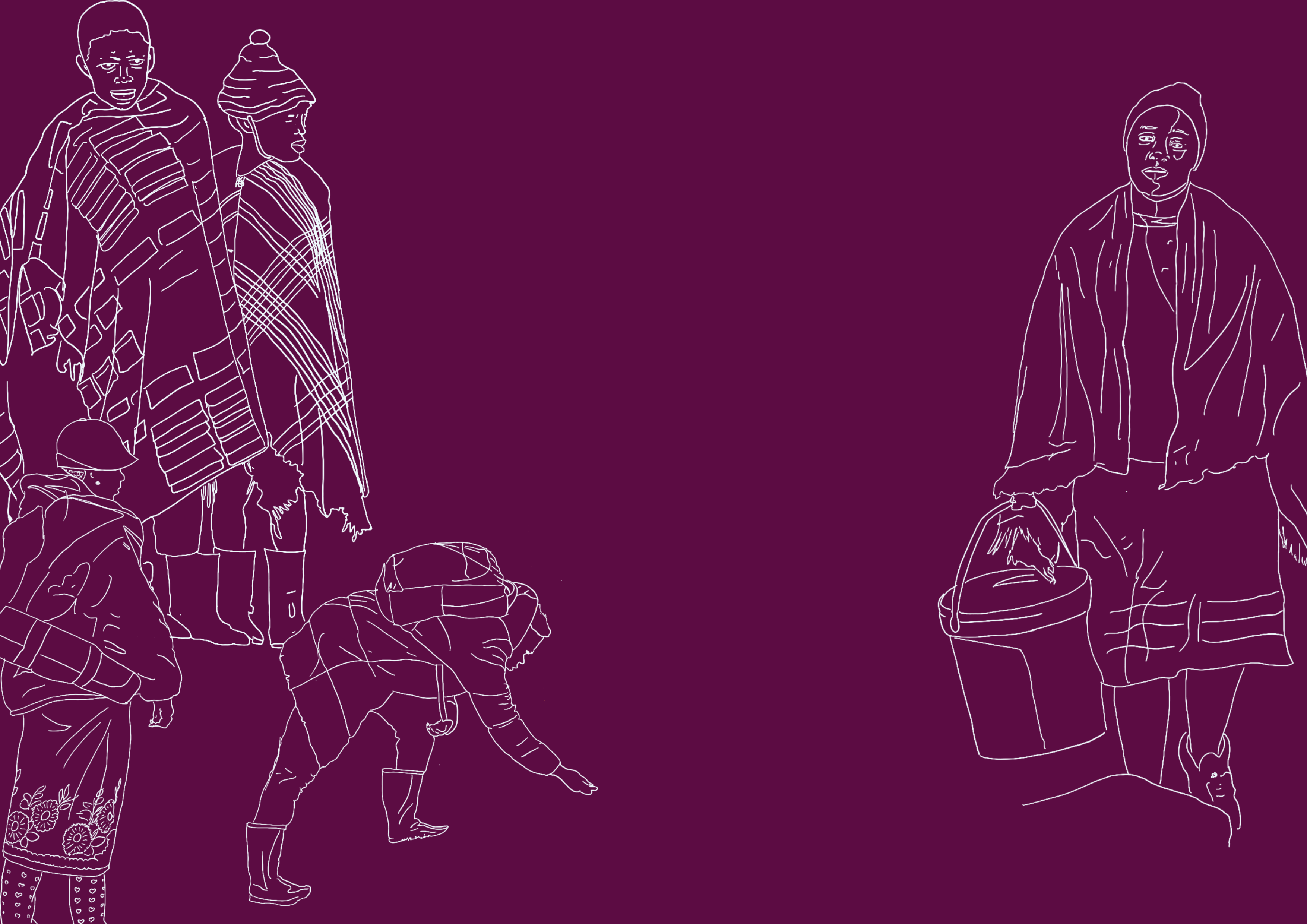
In August 2023 an opposing politician, Basotho National Party leader Machesetsa Mofomobe, threatened the prime minister with criminal action and filed for a motion in parliament for the reinstatement of the Value Added Tax (VAT) Amendment Bill of 2021 in direct response to the massive profits generated by diamond mines of which the prime minister is a beneficiary.
“The current exploitation of the zero-rating on VAT by the diamond mining companies results in the Revenue Services Lesotho refunding around M40 million (1,68 million GBP) to these mines combined every month, but I am putting my head on the block to see this situation overturned. ...You (mines and government) do not know what is coming to you, so do not take it lightly. We will march for those diamonds to benefit Basotho, and I am not bluffing on this one. It is about time you and your cahoots were taught a lesson.”
Mofomobe also accused the prime minister of allowing the country’s four top mines to flout Lesotho’s laws because they allegedly benefit from these companies.
In August 2023 an opposing politician, Basotho National Party leader Machesetsa Mofomobe, threatened the prime minister with criminal action and filed for a motion in parliament for the reinstatement of the Value Added Tax (VAT) Amendment Bill of 2021 in direct response to the massive profits generated by diamond mines of which the prime minister is a beneficiary.
“The current exploitation of the zero-rating on VAT by the diamond mining companies results in the Revenue Services Lesotho refunding around M40 million (1,68 million GBP) to these mines combined every month, but I am putting my head on the block to see this situation overturned. ...You (mines and government) do not know what is coming to you, so do not take it lightly. We will march for those diamonds to benefit Basotho, and I am not bluffing on this one. It is about time you and your cahoots were taught a lesson.”
Mofomobe also accused the prime minister of allowing the country’s four top mines to flout Lesotho’s laws because they allegedly benefit from these companies.
Maloraneng/Patising communities sign a 2023 calendar produced as part of Pascalinah Kabi’s community engagement under Bertha Challenge Fellowship. Credit: ‘Mamokete Makoko.
Maloraneng/Patising communities sign a 2023 calendar produced as part of Pascalinah Kabi’s community engagement under Bertha Challenge Fellowship. Credit: ‘Mamokete Makoko.
Barely a year after Pascalinah’s Fellowship ended, the impact of her story led to a water testing investigation by the Department of Water Affairs in November 2022 and January 2023. The water testing investigations were conducted at Maloraneng stream and concluded that Letšeng Diamonds Mine was intentionally polluting the stream and that drinking the water “will cause diarrhea, [and] sensitive individuals and infants will suffer from hemoglobinemia, in which case, they (sensitive individuals and infants) will suffocate, which can lead to death,” and recommended action to address the pollution. Letšeng Diamonds Mine stated that it did not understand the connection between their work and hemoglobinemia, effectively kicking their responsibility down the line.
To this day continued pressure is being placed on authorities to take action against Letšeng.
Are you interested in knowing more about Pascalinah's work? Watch her Bertha Challenge video here.
Barely a year after Pascalinah’s Fellowship ended, the impact of her story led to a water testing investigation by the Department of Water Affairs in November 2022 and January 2023. The water testing investigations were conducted at Maloraneng stream and concluded that Letšeng Diamonds Mine was intentionally polluting the stream and that drinking the water “will cause diarrhea, [and] sensitive individuals and infants will suffer from hemoglobinemia, in which case, they (sensitive individuals and infants) will suffocate, which can lead to death,” and recommended action to address the pollution. Letšeng Diamonds Mine stated that it did not understand the connection between their work and hemoglobinemia, effectively kicking their responsibility down the line.
To this day continued pressure is being placed on authorities to take action against Letšeng.
Are you interested in knowing more about Pascalinah's work? Watch her Bertha Challenge video here.
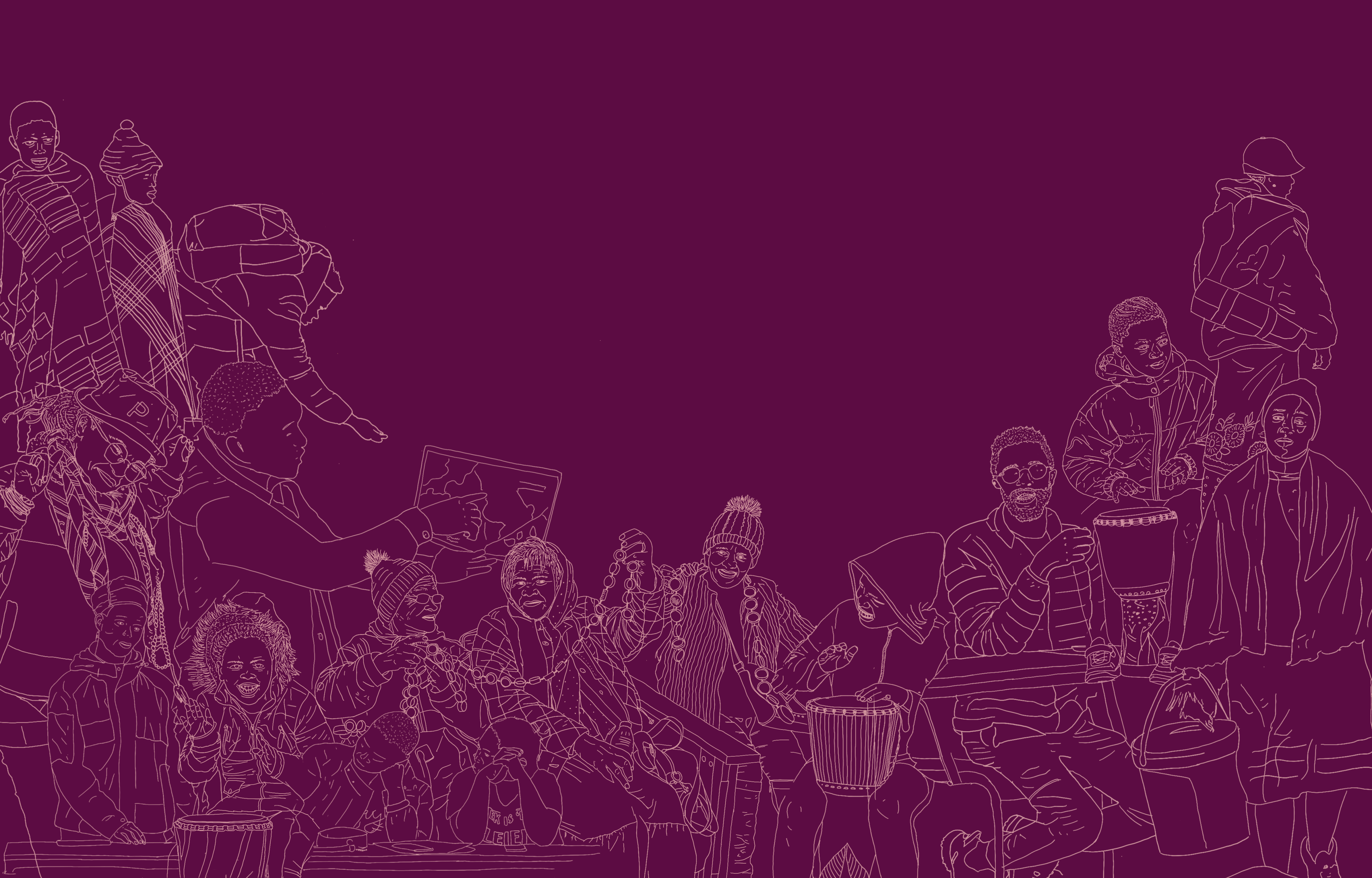




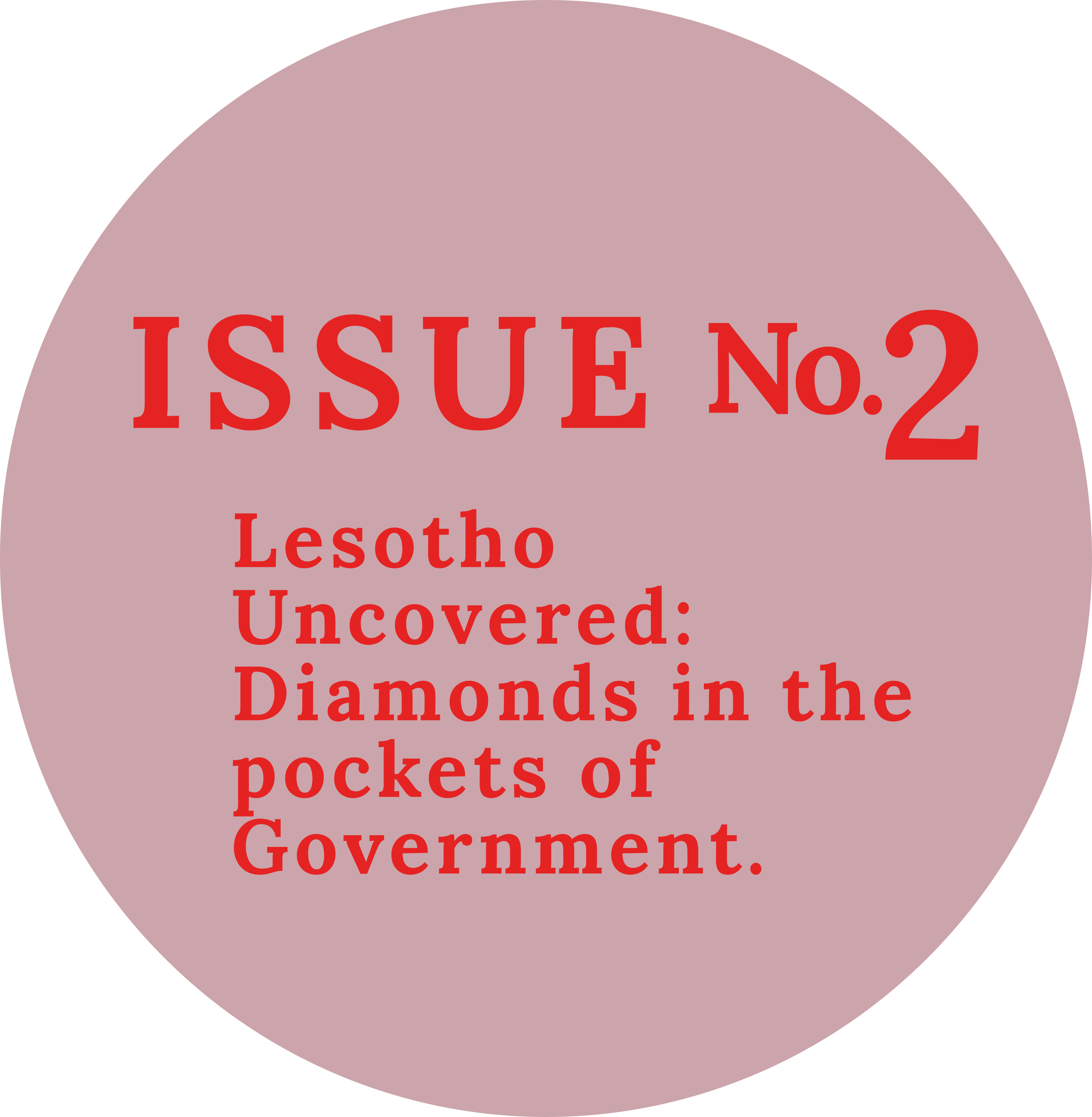






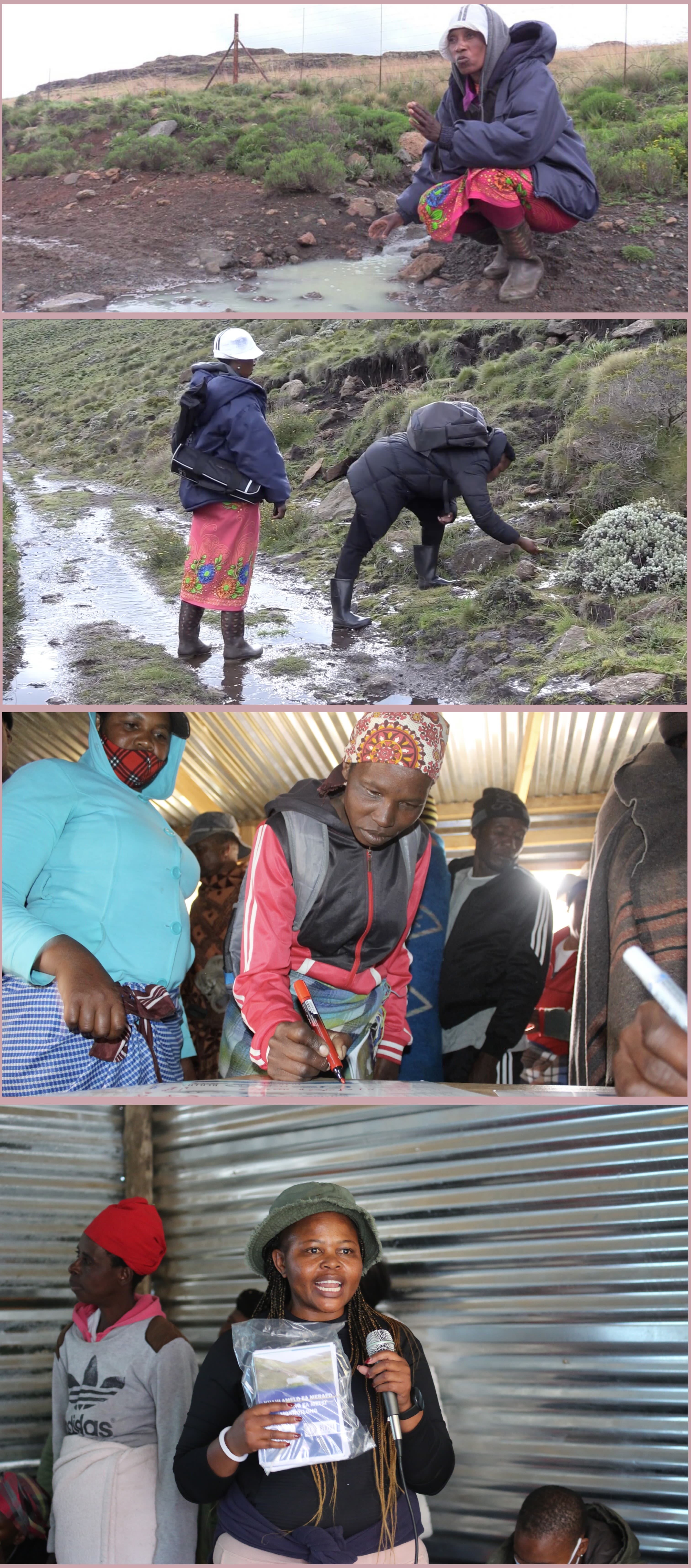
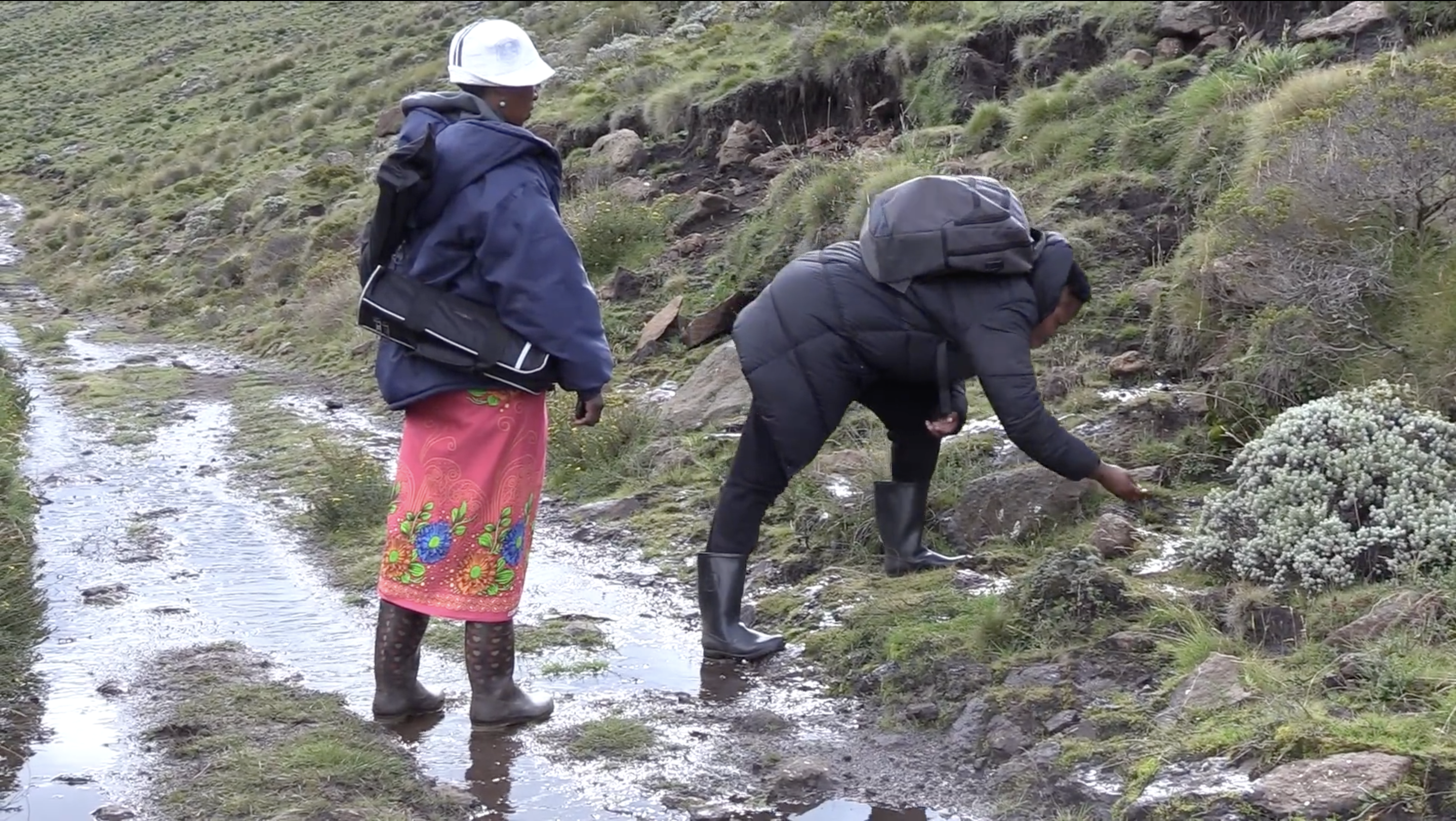
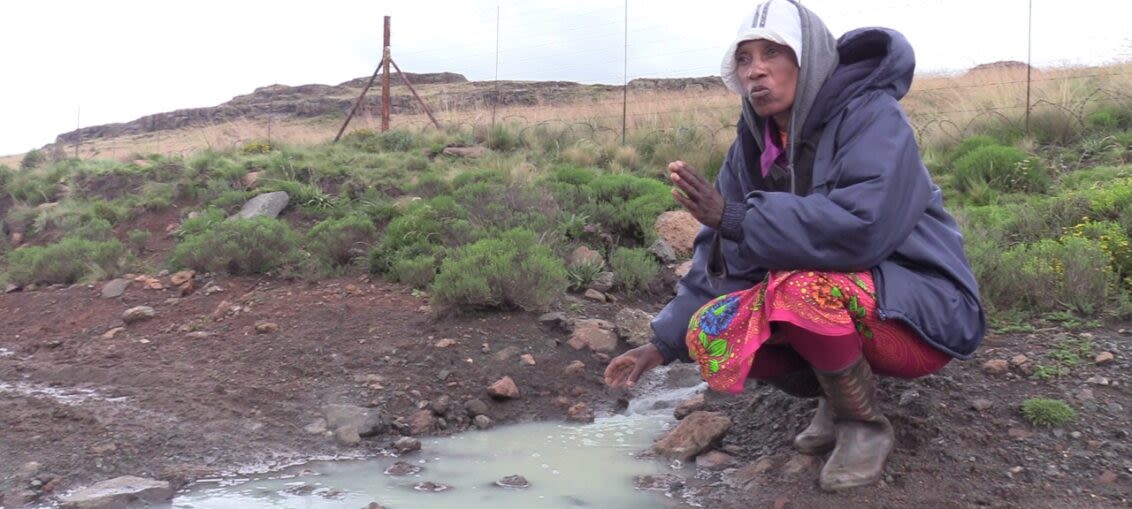
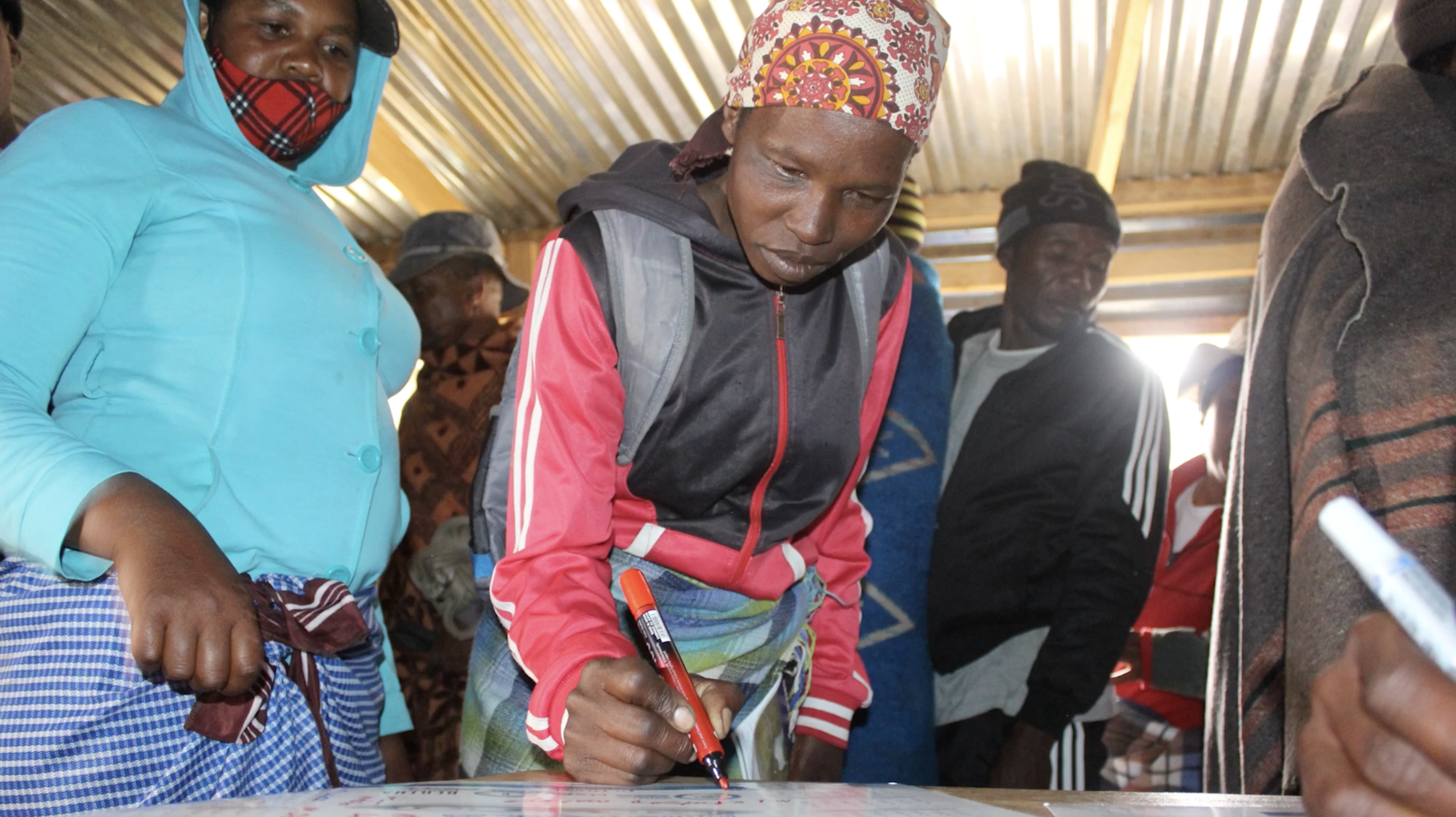
 Built with Shorthand
Built with Shorthand